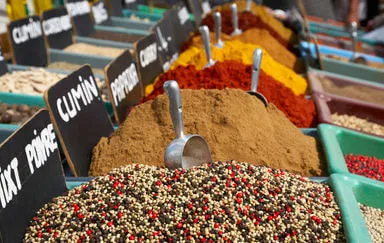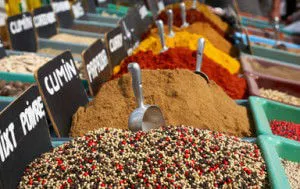
- Share on Facebook30
- Share on Pinterest
- Share on Twitter
Greening up your shopping habits may take a little extra time than normal at first, but it pays off in the the end. Shopping green can save you money, help the environment, promote smaller businesses, reduce waste and foster community relations.
Buy Green Clothes: Who doesn’t love heading to pick up some of this week’s hottest deals? While this may be fun, it is neither green nor cost effective. Instead of buying cheap, imported clothes at marked up prices, look for higher quality items that will last longer. Materials like hemp, organic cotton, and other recycled materials last longer and look awesome.
Look for great finds at local thrift stores, ebay, etsy, and other handmade, vintage, and recycled clothing shops. Learn to do a little sewing and make a few of your own outfits, or modify thrift-store finds to suit you. Don’t buy fashion trends, only classic styles. This will ensure you won’t need something new after just one season of wearing. Never buy anything you won’t use. Remember you can really only wear one pair of jeans at a time anyways!
Choose Gifts Wisely: Christmas, birthdays, and other holidays leave us wondering what to buy our friends and loved ones. If you are crafty, or want to learn to be, try making your own gifts. A nice crocheted scarf and a pair of knit socks make a great christmas gift. Homemade lotions, jams, cookie mixes, decorative items, and toys, all also please friends and family.
If you don’t feel like making it yourself, try online craft stores, or visit a local craft fair in your area. Gift cards also make great gifts and save on packaging. If you are really feeling green, gift a sponsor gift card to save wildlife or people in need. If you feel you must buy a conventional gift, get one online to save the gas from driving to the store.
 Think Before You Eat: Use reusable grocery bags, and shop at local farmers markets as often as possible. Buy fresh food, and avoid packaged and processed items. Try to buy local as much as possible and get in touch with some farmers around you selling goods. Sign up for food co-ops and share products you buy. Buy organic and natural items instead of pesticide-laden foods.
Think Before You Eat: Use reusable grocery bags, and shop at local farmers markets as often as possible. Buy fresh food, and avoid packaged and processed items. Try to buy local as much as possible and get in touch with some farmers around you selling goods. Sign up for food co-ops and share products you buy. Buy organic and natural items instead of pesticide-laden foods.
If you must buy packaged food, do it in bulk. This saves packaging and money. Grocery shop less frequently and get what you need in one stop. If you need to visit several stores, park in a central location and walk if possible. If you live close to where you purchase groceries, try using your bike or on foot instead of driving (naturally, this does imply you aren’t going to get a large quantity of items).
Buy Long Lasting: Instead of buying things that will run out and need to be tossed, purchase long lasting, quality items you can re-use. Use cloths instead of napkins and paper towels. Get some plastic reusable dishes for parties and picnic instead of paper things. Buy long lasting tires for your car, and good quality appliances. Look after the things you do have and keep them in good working order so they can serve you well.
-The Alternative Daily
- Share on Facebook30
- Share on Pinterest
- Share on Twitter

